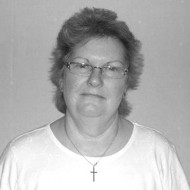It is 10.25pm on Wednesday night, a time most people will be thinking of turning in for the night, having had their hot chocolate and cleaned their teeth.
For some people, a read before sleep is a good way of winding down from the stresses of the day. I also thought this would be a good way to begin my rest. How wrong I was, and it is all the fault of the book I chose to read tonight. John Nickson is the author of Giving is Good For You. The covers inform me the book “shines a rare light on how little the rich give”.
I started to read this in the hope it would give me ideas for fundraising for the not-for-profit family organisation I set up, Family Focus. Well, it may well do this but in the meantime it has confirmed for me concerns and frustrations I have held for some time but John Nickson has also open up an Aladdin’s cave of concerns and worries for all of us.
Family Focus is based in an area of Lincoln that is recognised to be in the top ten deprived areas of the country. We know this, and we know all the problems and concerns that come with living and working in such an area. We are also aware that Lincolnshire, on the whole, is a relatively good area to live in. Many people I know moved to this area for cheaper housing, good standards of living as well as clean open spaces in which to enjoy and have the time to enjoy.
So what has got me so worked up that I find myself typing away at this time of night? Maybe it has something to do with the fact that Lincoln, like so many other parts of the country is a city of contrasts. We can live in a relatively well-to-do area and within a short five minute walk be in area of outstanding poverty.
Admittedly, we are not living in an area where a house can sell for £10 million, as in London, and a short walk away be in deprived area — or are we? Maybe houses do not sell for £10 million, but do we know who are near neighbours are and whether they are struggling to cope, or do we not really care that much?
Over recent years I can see a really difference in people’s attitude towards others. At one time we would really care about what was happening to others. Nowadays we tend to care about our own needs more and more. We are living in a culture that appears to be happy to label people, for instances “people claiming benefits” or “immigrants doing our work”. We seem to be grateful for the media’s ability to label others as it gives us the opportunity and the credence not to care quite so much.
Yet the reality is that one in five of us live below the poverty line — that means someone in your street is living below the poverty line. Included in the official number of people living in poverty, there are 3.5 million children struggling to cope day-to-day.
According to John Nickson, the poorest 10% of households had a wealth of £13,000; the wealthiest 10% had a wealth of £967,000 or more.
What is interesting is that the poorest give more to charity. Proportionately the richest 10% give less to charitable causes per year than the bottom 10% of the population.
So why have we stopped caring, why do we no longer enough about others? Is it because we are living in a culture where it is okay and not frowned upon to just think about our own needs first that we have forgotten about what is really important? This came home to us recently at Family Focus in such a forceful way that it even took my breath away.
Over the last six or so weeks, we have asked for support in order to purchase much-needed books to help us to work with children who can only see their parents if this is supervised. In our naivety we thought this would be an easy task, not asking too much from the community and we even though how we could spread the cost. We needed £100 so asked for five organisations to consider donating £20 or ten companies to donate £10. Not much when you consider it can cost nearly £10 for a couple of cups of coffee!
John Nickson has made me cross and sad, all at the same time. He has found the need to write a book that years ago would have been unthinkable. The sad part is that I am not sure those people who could make a real difference will be bothered to read his book. He has also woken me up when I should be sleeping.
To date, we are still waiting for a single donation towards our books.
Hilary Sharpe, the Founding Director of Family Focus, has spent her whole working life in social work working primarily with families and their children. She also worked for ten years as a residential social worker and for the past 16 years as an independent social work consultant. Hilary is also involved in the running of a small support group for retired and independent social workers.





